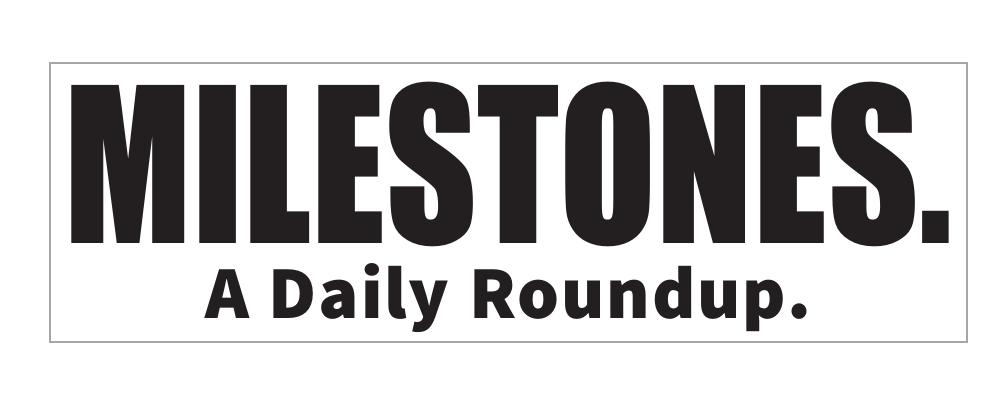Milestones: Wednesday, October 25, 2023

BATTLE OF AGINCOURT — ONE OF THE GREATEST MILITARY VICTORIES IN HISTORY took place on Oct. 25, 1415. During the Hundred Years’ War between England and France, the young king Henry V England led his armies to victory during the Battle of Agincourt in northern France. After having crossed the English Channel with 11,000 men, Henry V found a blockade of more than twice his army at Agincourt. However, strategizing that the smaller-scale battleground of 1,000 yards, an open area between two sets of woods, could be advantageous King Henry V and his men stood their ground as the French army, weighted down with armor, made its way across the muddy ground, and then the skilled English archers bombarded them from longbows. Henry dealt with great odds and lost only 400 men, whereas the French army had almost 6,000 casualties.
King Henry V continued to score conquests in France and in 1420 was recognized as heir to the French throne and the regent of France. But he died from camp fever not long afterward.
✰✰✰

Brooklyn Boro
View MoreNew York City’s most populous borough, Brooklyn, is home to nearly 2.6 million residents. If Brooklyn were an independent city it would be the fourth largest city in the United States. While Brooklyn has become the epitome of ‘cool and hip’ in recent years, for those that were born here, raised families here and improved communities over the years, Brooklyn has never been ‘uncool’.